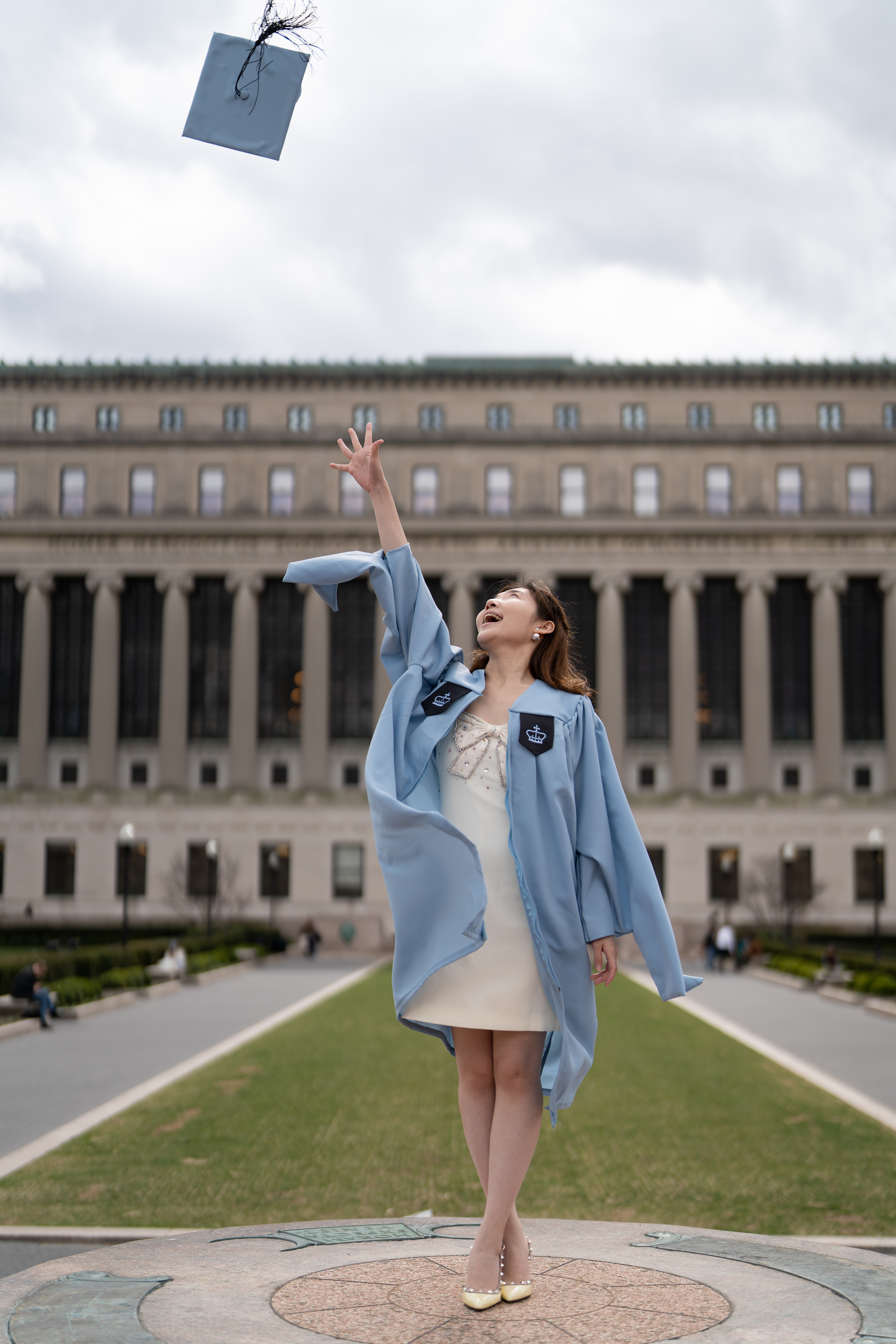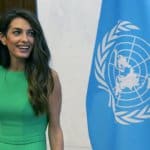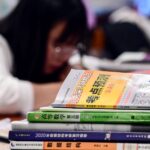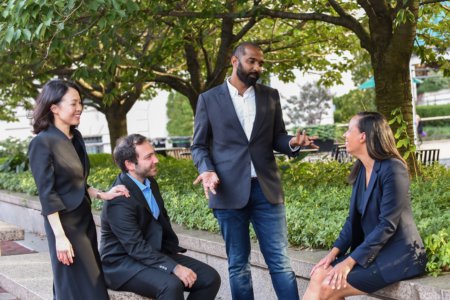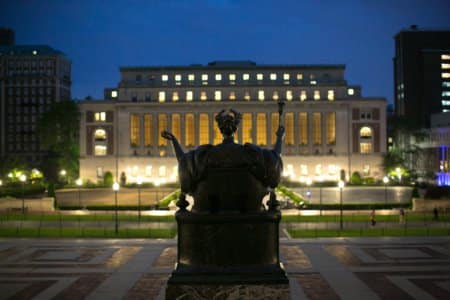When it comes to metropolises teeming with vibrant energy and an unparalleled diversity of individuals and interests, it’s hard to beat New York City. It serves as the ideal backdrop for Columbia University’s Graduate School of Arts and Sciences (where 59.7% of students come from abroad) and is where some of the world’s most talented scholars in the humanities, natural sciences, and social sciences advance their knowledge and skills in one of the oldest and most distinguished graduate schools in the country.
This rich history and the exceptional calibre of its faculty set apart the Master of Arts (MA) in Economics programme, where students build their knowledge in frontier methods in economics. Whether you’re aspiring to advance your career or pursue doctoral studies, the MA has a stellar track record of preparing graduates to achieve their goals, as the following testimonies illustrate.

Source: Columbia University
Ruchi Avtar from India, now a PhD student at New York University
Getting into Columbia “felt surreal” to New Delhi’s Shri Ram College of Commerce graduate. As soon as she arrived in her new cosmopolitan home, Ruchi wasted no time to immerse herself in the rigours of her MA programme. “I gained a solid foundation in qualitative and quantitative analysis,” she says. “It was a transformative experience that equipped me with the tools to navigate the complexities of economic research.” Under the guidance of esteemed professors like Jeffrey Shrader and Alessandra Casella, she delved into cutting-edge research that laid the groundwork for her future endeavours.
Being on Columbia University’s lively campus, Ruchi enjoyed an abundance of resources and events. “I took advantage of the many opportunities within the department and throughout to explore my extracurricular interests,” she says. “Events that stand out, in particular, are the variety of Women in Economics panel discussions organised by my fellow students. I also enjoyed attending the many social and professional development events hosted by the Master of Economics Student Association.”
Today, the New York University doctoral student attributes many of her achievements to the skills she cultivated at Columbia. “Learning to navigate professional spaces and forge meaningful connections has been instrumental in shaping my academic trajectory,” she says. Looking ahead, she envisions a future in academia, where she hopes to continue her research in experimental and behavioural economics while giving back to the next generation of scholars.
Wanwan Liu from China, now at Wells Fargo
Wanwan Liu’s first developed an interest in behavioural economics as an undergraduate. “I remember reading Daniel Kahneman’s ‘Thinking Fast and Slow’ and became interested in understanding how psychology plays a part in everyday human decisions,” she says. Enrolling in Columbia’s second MA in Economics cohort, she found herself part of a vibrant community brimming with varying perspectives. “The diverse backgrounds of Columbia’s professors really broadened my perspective, both academically and personally,” she says.
Their support made it all the easier for Liu to sharpen her analytical skills and gain a better understanding of macroeconomics and econometrics. These competencies would prove to be key in her subsequent role in Fixed Income Sales at Wells Fargo, which requires a deep understanding of the macroeconomy, monetary policy and global markets.
Liu is just as proud of the communication skills she developed at Columbia, which helped her make full use of the networking opportunities abundant in NYC’s financial sector. Professional perks aside, there was lots to love about life in the Big Apple. “I especially like the diversity and fast-paced culture of NYC, not to mention the incredible food scene,” she says. “But it’s the close proximity to finance that really made Columbia’s Econ programme an attractive choice for me.”
Zeki Berkay Saygin from Turkey, now a PhD student at the University of Chicago
Zeki Berkay Saygin was working in tech as a Product Marketing Manager when he felt a strong pull towards economics research. Determined to enrich his analytical toolkit and explore new horizons, he applied to the MA in Economics programme. “Columbia was always my top choice,” he says.
“It was an extremely nurturing experience,” he says. “I found the Department of Economics very flexible and responsive in understanding my research interests and academic objectives and tailoring resources for me to meet these aspirations.”
Saygin got to explore courses offered by the Mathematics department, PhD-level courses in Economics and more. He particularly enjoyed working on his research paper under the guidance of his advisor, Guillaume Haeringer. He was even able to work as a research assistant and teaching assistant whilst at Columbia. It’s this multifaceted mix of experiences that eased his transition to doctoral studies.
“I found the level and rigour at the Columbia MA programme perfect for preparing for a PhD programme as it offers familiarity with a broad range of topics that makes diving into each considerably easier during the first year PhD sequence,” says Saygin, who is currently pursuing his PhD in Economics at the University of Chicago.
Follow Columbia University’s Graduate School of Arts and Sciences on Facebook, X and LinkedIn

